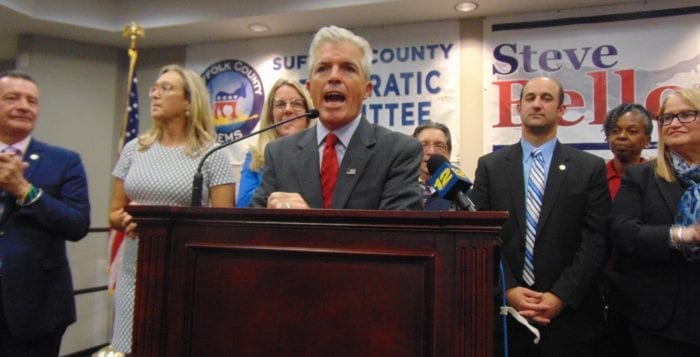Editorial: What endorsements mean

As election season draws to a close, finally, we are among the many breathing a sigh of relief.
We heard that a few people were unhappy with our endorsements. That, of course, should be expected. Some points, though, need to be made clear about our process for endorsing candidates.
Starting in late summer, we start gathering a list of candidates for the upcoming electoral season and arrange candidate debates in TBR News Media offices in Setauket. The process is long and grueling and, despite months of effort, sometimes candidates cannot find a time that works for everyone or, as we saw in several cases this year, some people simply never respond or don’t show up. So, we talk with the candidates that do come to the office and conduct candidate interviews over phone or email with the remainder. The better interview is always done in person as a debate in a roundtable discussion.
The last publication date before election day — which for us is a Thursday — becomes the election edition. In that issue, we exclude letters to the editors that focus on local politics, because there is no way for people to respond publicly before the election. Instead, we include our endorsements on the letters-to-editors pages.
Our election issue contains multitudes of political advertising, but there’s a common misconception that advertising buys our endorsements. The advertising and editorial departments are two distinct entities, and work on two separate floors of our small office space. Advertising is indeed what keeps TBR afloat, but that department has no input on editorial decisions. Of course, there is communication between departments in the newsroom, but that comes down to the placement of ads, and our papers policy avoids placing political ads for candidates on the same page as the candidate profiles that we write.
The endorsements are a product of the interviews, not the other way around. In fact, we are prouder of the debate articles we conduct, which we try to make as balanced as possible between the candidates. We let all sides speak their piece before carefully writing the articles. The debate interviews are conducted throughout October, then written and placed into our annual election issue. These articles range from 500 to more than 1,000 words each for some of the wider-ranging offices.
The endorsements, on the other hand, are barely more than 200 words each. They represent the collective opinion of editors, along with our publisher Leah Dunaief who moderates the debates. We consider long and hard all that we heard, along with our experience with the candidates on the campaign trail. Sometimes we cannot come to an agreement, or may be on the fence, and meet again the next day to review pros and cons of our choices. The endorsements represent those who we feel might make a better fit for office, but they are also our chance to compliment the person we didn’t endorse or criticize candidates for past performance.
We at TBR News Media congratulate all who stepped up to campaign for public office but, if we were to be honest, endorsements sometimes have little bearing on future performance. In 2016, we endorsed the opponent of Suffolk County Sheriff Errol Toulon Jr. (D) for the office. Toulon won that election, and in 2018 we named him one of our People of the Year. What matters is what an elected official does for the constituents when in office.






